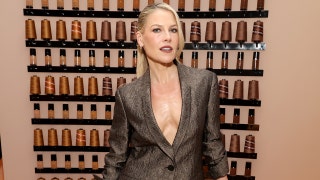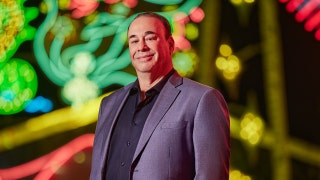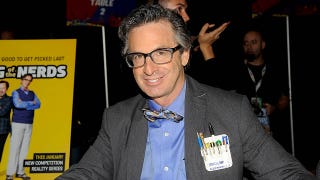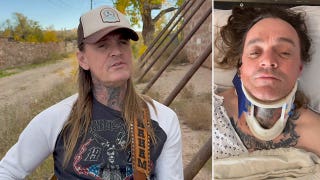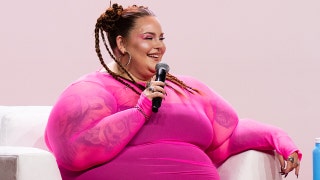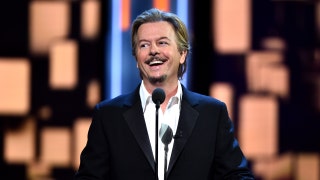On the eve of the 2016 Emmys, GQ corralled the superb cast of FX's (subsequently Emmy award-winning) series "The People v. O.J. Simpson: American Crime Story" in Los Angeles to pose for a spread in GQ's annual Men of the Year issue. Since this distinguished troupe of reenactors is probably as close as we'll ever get to the real trial participants, we took the opportunity to ask them once and for all: Did O.J. do it?
Cuba Gooding, Jr. (O.J. Simpson):
"I had an opinion when the trial came out that I didn’t care if he did it or not. I just didn’t want another black man railroaded. As I researched this role, I would go through all of the documentaries that proved his innocence, and all the documentaries that proved his guilt. And now I’m overrun with information from almost every perspective and point of view. Ryan Murphy and I got to a point where he would say, ‘Do this take where Simpson is struggling with the guilt of what he has done.’ And then, ‘On this take I need you to do it where he’s innocent and he’s feeling the frustration.’
"It’s not my job to claim [Simpson’s] guilt or innocence, because I don’t want people to see my performance and think that it was based on one concept or the other. There’s still questions either way.
"And, also, I think anybody that believes he’s guilty—there’s nothing I’m going to say that’s going to sway them. Or anybody that thinks he’s innocent—if he came out of jail and said, ‘I did it,’ they’ll be like ‘Jail must have broke him.’ What I don’t want is for people not to tune in because it’s like ‘that actor’s giving that performance.’"
RELATED: Kim Kardashian West Opened O. J. Simpson’s Infamous Bag
Sarah Paulson (Marcia Clark):
"Does it matter what I think? I do think he did it. I thought he did it before I played the part. But, in all fairness to him, I thought he did it based on my very loosely held understanding of what had happened—because I wasn’t that focused on the trial. I was 19 at the time. Now my opinion is one based on what I think are irrefutable pieces of evidence, plain and simple. That comes from having played Marcia.
"But I had a moment of, 'Wow, I did think this,' and I had decided on this [without examining the facts]—even though I do think I had the correctly held opinion. But given what Marcia went through and given what I was asked to do [in playing her], perception was very, very much in the forefront of my mind—and how decisions are made about things based on very little information."
John Travolta (Robert Shapiro):
"I think that the evidence feels overwhelming that he did. But I can’t declare that. I think my character thought he did—I never talked to Shapiro, but all the recommendations he was making... Toobin wrote the book [on which the series was based] with the declarative. And I think he wrote my character with that declarative. It’s hard, when you put all the pieces together, to not see that [Simpson’s guilt] is a strong possibility. But could I absolutely say? I can’t. I think the implication is there. There was too much [evidence] ultimately for you not to come to that conclusion. But the win had so much more to do with other things, as the show explained. To do with the race situation at the time and the mistreatment of earlier people. So this was almost a making-up."
RELATED: O.J. Simpson Has Some Thoughts About American Crime Story
Sterling K. Brown (Christopher Darden):
"For me, with all the evidence that I saw, and playing Christopher Darden, it’s hard for me not to think like [Darden] thought. The evidence led to one person. A lot of people have questions as to whether somebody else could’ve possibly been involved, which is possible. Anything’s possible. But I definitely think he was present at the deaths of Ron Goldman and Nicole Brown Simpson."
Courtney B. Vance (Johnnie Cochran):
"I don’t know. I don’t. It’s like ‘Who shot Kennedy?’ I think we will find out in the by and by. I know he’s in jail now. And there was some angst there about something. Only he knows. There’s something about our American psyche — there’s a river of discontent that’s going through our country. And it was always going through our country, from the time we began. The slavery issue, our issues of sexism, and racism…But that’s life. We’re always going to be battling against something. The question is: Are we going to deal with it? Are we going to look at it? Or are we going to continue to bury it? And I think Ryan Murphy and Brad Simpson and Nina Jacobson brought the project to the fore at the right time to continue our discussions.
"People are now discussing whether or not to stand and put your hand over your heart for our national anthem. I’s a tricky question. The madness of our country, but the beauty of it, is that the fabric is stretchy. It, it stretches, but it cannot break. It cannot tear. We cannot allow the fabric of our society to tear. And some things are worked out in the courts, and in the Congress, but some things are worked out in the human heart. And we got to work it out."
Kenneth Choi (Judge Lance Ito):
"I think that the hard evidence points to the fact that he did it. And there’s so much damning evidence that he had to have done it."
Bruce Greenwood (Gil Garcetti):
"The evidence is beyond clear. Yes."
David Schwimmer (Robert Kardashian):
"I’m not going to answer that. I’m not going to answer it. I mean, I definitely have an opinion. I would say that it seems that Kardashian had his, his doubts that he himself expressed in other interviews after the trial. Specifically, with Barbara Walters. There was a lot of the blood evidence was something that could not get his head around. So I think even one of Simpson’s closest friends had reservations and was conflicted about his innocence."
MORE: How David Schwimmer Turned Robert Kardashian Into the Conscience of American Crime Story


